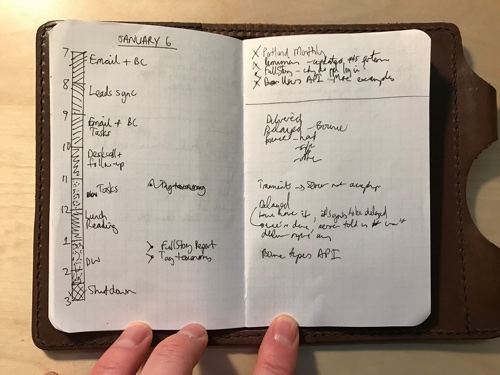Craig Mod’s How I Got My Attention Back is one of those essays that I think will become a classic. It strikes that rare and difficult balance of talking about technology dependence without falling into the “ALL TECHNOLOGY BAD!” trap we often see in similar pieces. There’s so much that resonated with me, but this part in particular stood out:
The more I thought about my attention the more I thought about the limits to human scale. How technologies inevitably amplify ourselves — the best and worst parts — in a way that is almost impossible for us to comprehend. How that scale is so easily co-opted to attenuate our attention with the worst possible diet of high-sugar, high-carb nothingness.
I also appreciated the point he makes that as much as we tend to blame ourselves for being too “weak-willed” to give up Facebook or Twitter, we have to remember that there are thousands of people on the other side of that product who are trying to figure out new and innovative ways for us not to give it up. He quotes from Bianca Bosker’s Addicted to Your iPhone? You’re Not Alone:
“You could say that it’s my responsibility” to exert self-control when it comes to digital usage, he explains, “but that’s not acknowledging that there’s a thousand people on the other side of the screen whose job is to break down whatever responsibility I can maintain.” In short, we’ve lost control of our relationship with technology because technology has become better at controlling us.
I’ve had my own struggles with this over the past year as I dealt with a huge personal loss. In the end, my re-entry to a more sustainable online presence came from a very unlikely source: a book I would never have read if someone didn’t force me…
Our CEO sent us all a copy of Deep Work: Rules for Focused Success in a Distracted World and asked us to read it. I expected to snigger my way through it but boy, was I wrong. It is a fantastic plea for taking back our attention at work, and it provides some really useful guidelines on how to do that. For my part, the idea of “work blocks” is one I’ve taken to heart, and it’s done wonders for my productivity. I also bit the bullet on RescueTime, and it really is as good and useful as everyone says it is.

For more on work blocks and other non-digital productivity methods, check out Chris Bowler’s excellent resource on Working with Pen & Paper.
So I guess my one recommendation is, read Deep Work. Even if (or maybe especially if?) you don’t usually like business books. You won’t be disappointed.